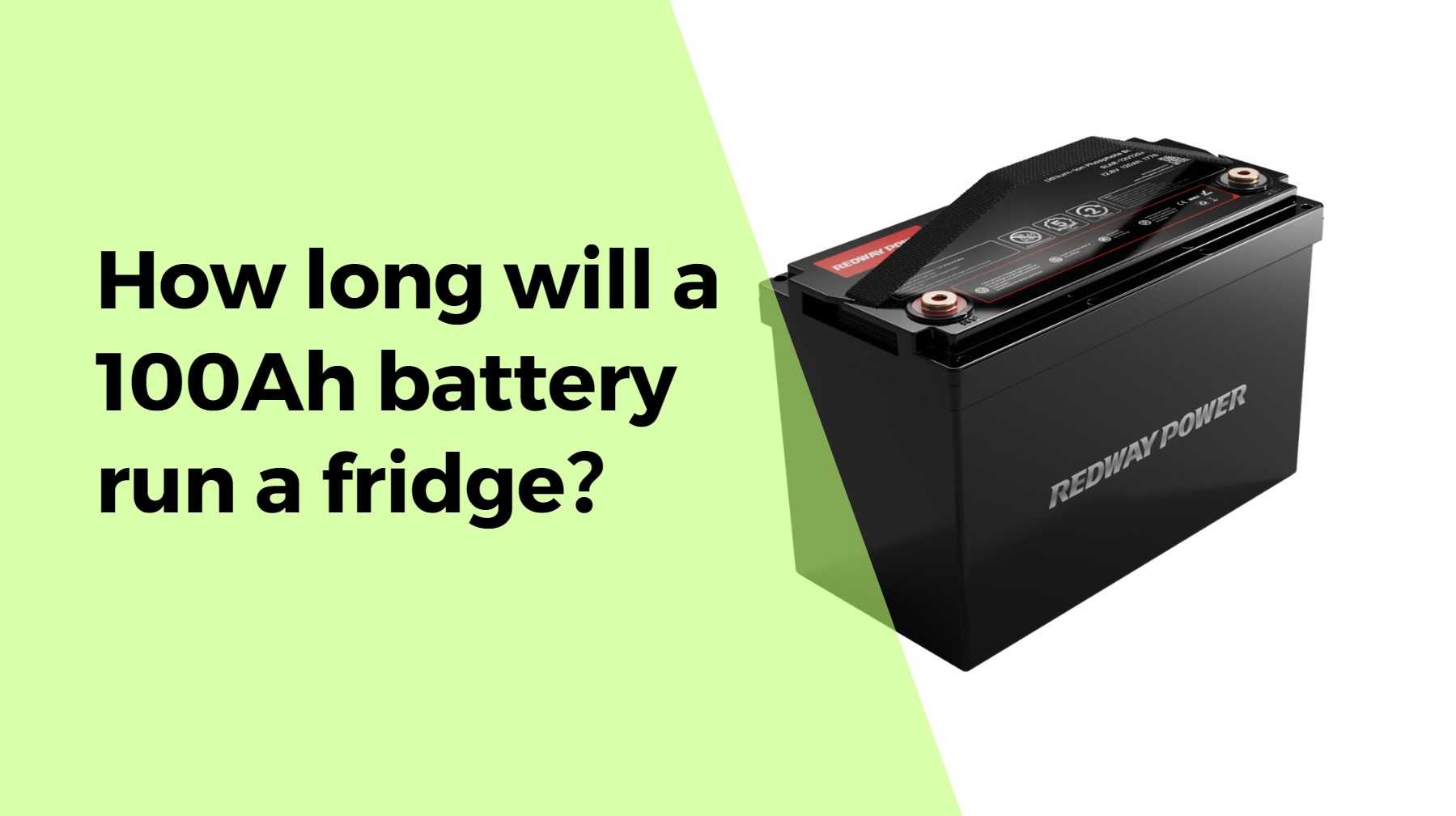A 100Ah (ampere-hour) battery is a robust energy storage unit commonly employed in off-grid solar systems, recreational vehicles (RVs), boats, and various other applications requiring reliable, portable power. Capable of delivering 1 ampere of current for 100 hours or 10 amperes for 10 hours before necessitating a recharge, these deep cycle batteries are engineered to endure frequent discharges and recharges without performance degradation. They are particularly valued for their thicker plates, which contribute to a longer lifespan and greater discharge capacity compared to conventional car batteries.
Key Features of 100Ah Batteries
- Long Lifespan: Designed for prolonged use with minimal performance loss.
- Deep Discharge Capability: Can be discharged deeply without adverse effects on battery health.
- Versatility: Suitable for a wide range of applications, including off-grid adventures and emergency power solutions.
How Long Will a 100Ah Battery Run a Fridge?
The duration a 100Ah battery can power a refrigerator depends on several critical factors including the refrigerator’s size, energy efficiency, ambient temperature, and usage patterns.
Estimating Battery Life
- Average Duration: Typically, a 100Ah battery can power an average-sized, energy-efficient refrigerator for approximately 24 hours before needing a recharge.
- Variable Factors:
- Refrigerator Size and Efficiency: Larger or less efficient refrigerators consume more power.
- Door Usage: Frequent opening and closing of the fridge door let out cold air and introduce warm air, increasing power consumption.
- Ambient Temperature: Higher outside temperatures force the fridge to work harder, using more battery power.
- Simultaneous Appliance Use: Running additional appliances from the same battery will shorten the duration the refrigerator can operate.
Practical Calculation Example
Assuming a refrigerator with a power consumption of 100 watts:
- Battery Capacity: 100Ah at 12V = 1200 watt-hours (Wh).
- Refrigerator Consumption: 100 watts per hour.
- Operational Time: 1200 Wh / 100 W = 12 hours.
This simplistic calculation does not account for energy losses and inefficiencies, which are typical in real-world applications, thus often resulting in an operational duration of around 24 hours under average conditions.
Benefits of Using a 100Ah Battery
Long-Lasting Power Supply
A 100Ah battery offers a sustainable power solution for prolonged periods, making it ideal for situations where continuous power is critical.
Portability
These batteries are portable, allowing them to be easily transported for outdoor activities such as camping, boating, or RVing.
Environmental Friendliness
100Ah batteries, especially modern lithium-ion versions, produce zero emissions, making them an eco-friendly alternative to fossil fuel-based generators.
Cost-Effectiveness
With low discharge rates and efficient energy storage, 100Ah batteries can lead to significant cost savings over time, as they require less frequent replacements compared to traditional lead-acid batteries.
Advanced Safety Features
Modern 100Ah batteries come equipped with advanced safety features like thermal management systems, protecting against overheating, short circuits, and overcharging.

Drawbacks of Using a 100Ah Battery
Weight and Bulkiness
One significant drawback is their weight and size, which can pose challenges for portability and handling. The heavy nature of these batteries can also add extra load to vehicles, potentially affecting performance.
Cost
100Ah batteries can be more expensive upfront compared to other battery types. While they offer better performance and longevity, the initial investment might be a limiting factor for some users.
Limited Capacity for High Wattage Appliances
While a 100Ah battery can efficiently power low to medium-wattage appliances, it may struggle with high-power devices like air conditioners or microwaves. In such cases, multiple batteries or higher-capacity alternatives may be necessary.
Effective Battery Management for Optimal Performance
Monitoring Usage
Regularly monitor the battery’s charge level and avoid deep discharges to prolong its lifespan.
Efficient Appliance Use
Prioritize running only essential appliances to conserve battery power. Minimize the opening of the fridge door and ensure it is well-insulated.
Recharging
Use solar panels or other recharging methods to keep the battery topped up, especially during extended off-grid periods.
Storage and Maintenance
Store the battery in a cool, dry place and conduct periodic maintenance checks to ensure it remains in optimal condition.
Conclusion
A 100Ah battery is a versatile and reliable power source, ideal for running a refrigerator during camping trips, power outages, or off-grid living. While there are some drawbacks, such as weight and cost, the benefits of long-lasting power, portability, and environmental friendliness make it a worthy investment. Proper management and efficient use can maximize the battery’s performance, ensuring a steady power supply for various applications.




